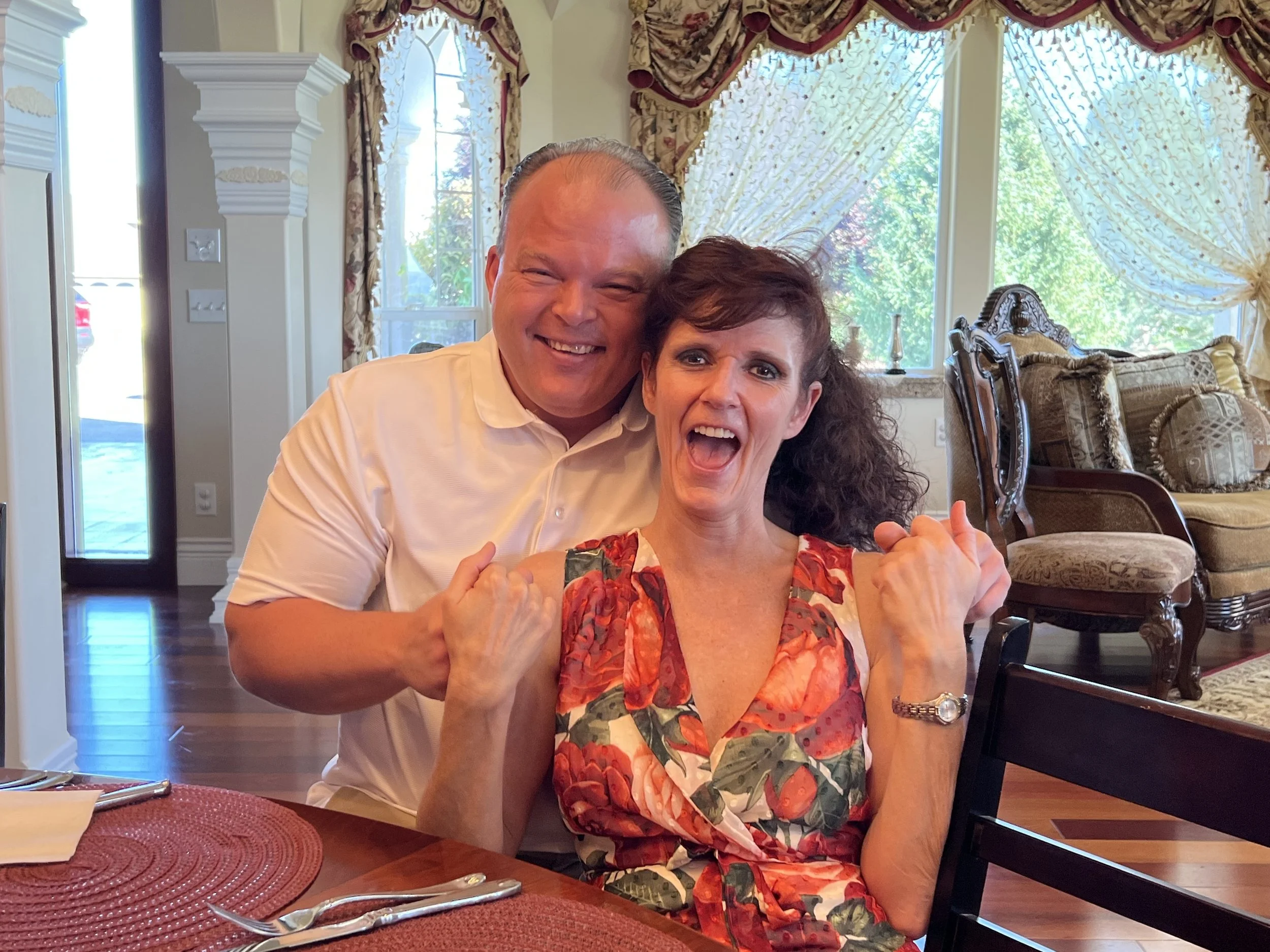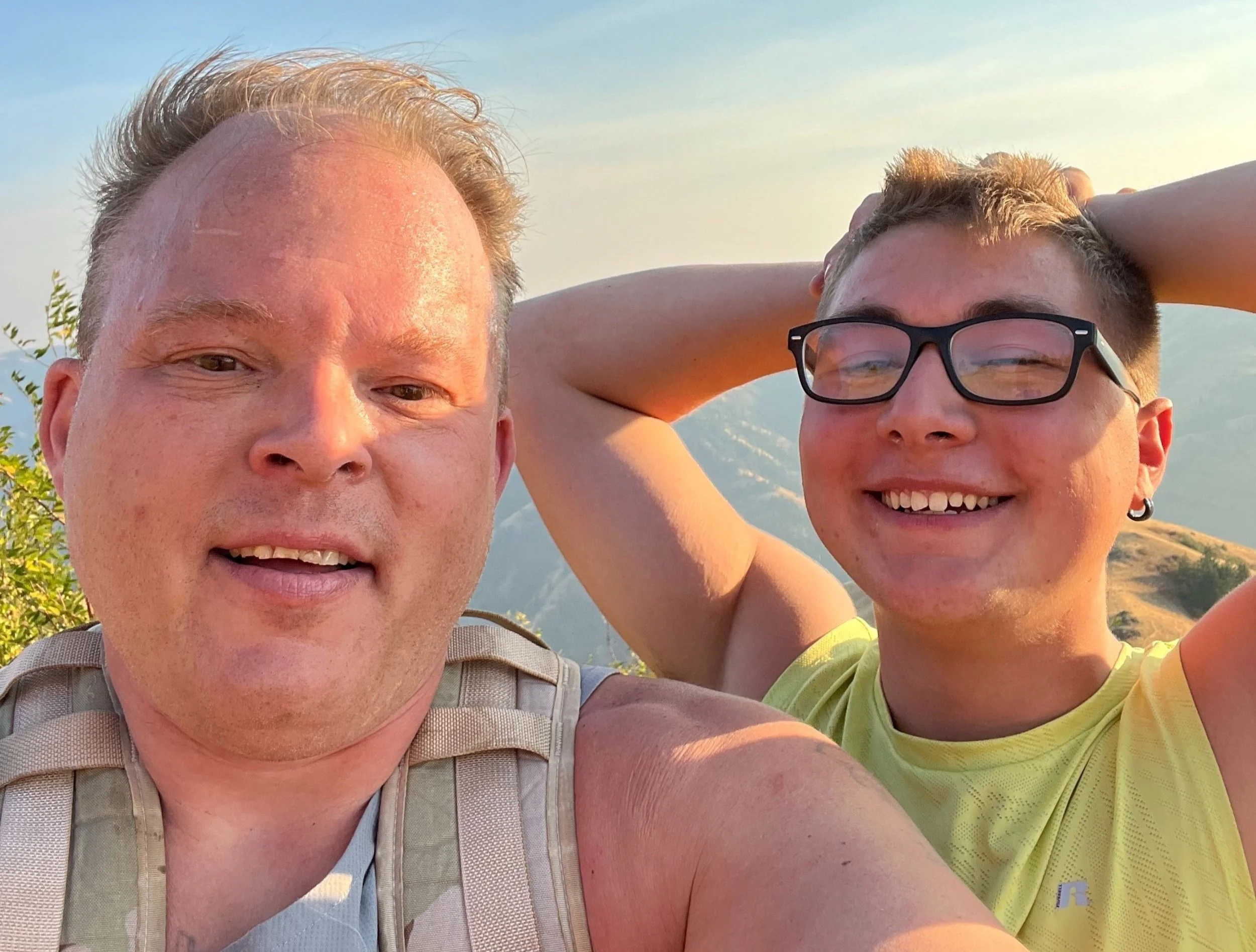Leonard Norling’s Story
By Brooke Kaufman, Communications Specialist
Leonard and his wife, Shorna
Photos courtesy of Leonard Norling
Leonard Norling speaks about life as though everything is a gift from God. And for him, it is.
“The foundation for my success is in my faith. It’s not me; it’s Jesus.”
Leonard was released from prison in February 2021 after his sentence of life without the possibility of parole was commuted. He was convicted in October 1999 under Washington State’s three strikes law; each year, “three strikers” like Leonard would hear about potential changes in the law, only for nothing to happen. When the opportunity to apply for clemency presented itself, Leonard was hesitant to believe it would work.
“In prison, it’s such a small micro-community that rumors just spin. Pretty soon, you stop listening.”
Eventually, a friend of Leonard’s went before the board and received a unanimous recommendation for clemency. This, coupled with the advice of a Seventh-Day Adventists volunteer who came to the prison through the ministry program, convinced Leonard he should write a letter to the Seattle Clemency Project. Three months later, he received a visit from John Zulauf, the previous legal director at SCP, who connected Leonard with Joe Bringman of Perkins Coie. Soon, Joe and other members of the Perkins Coie team began coming to the prison to speak with Leonard about his history and the personal growth he had undergone while incarcerated. For Leonard, this solidified a trusting relationship between him and his advocates.
“I had my faith, and I prayed. I just let it be, come what may.”
Two years would pass before Leonard's hearing before the board, and another 13 months of waiting went by before the governor granted him a commutation. Initially, Leonard was given an 18-month map-out plan, but COVID-19 restrictions inside the prison made him eligible for immediate release. Thirty-five days later, Leonard was free.
“When I went from life without parole to ‘You have 35 days left,’ my mindset had already been transitioning from years before when I surrendered to Jesus and said, ‘I’m good; I’m not in control. You do with me what you will; just let me help somebody so that they don’t end up like me.’”
Leonard describes the clemency process as “letting go of everything.” Drafting his personal statement proved to be a “difficult but rewarding” task that had him lay bare the turning points of his life.
“Once you’re done [writing], there are no more skeletons. Everything is out for the world to see; there’s nothing to hide from.”
Still, relying on his faith, Leonard crafted a petition for the board that demonstrated his readiness for release.
“I had been working on myself and self-improvement for years prior to this. I did a lot of cathartic writing, which was a way of getting [everything] out, of putting thoughts into words and being able to reflect on things.”
Before clemency was an option, Leonard says there came a point when he decided that his life would be different. He wanted to change his thought process and how he approached conflict, so he pursued education. DOC policy requires people serving life sentences to pay for their education, provided space is available — something Leonard says doesn’t exist. To get into classes, Leonard had to get creative. He would ask people in his positive self-help programs about counselors or teachers that could admit him to self-help or education classes. Then, he would have educators open his referrals, allowing him to take the classes. To be safe, he would have others carry his books into class so he could continue flying under the radar. He says, “If somebody wants an education [in prison], they can get it.”
This tenacity is something Leonard applies to his work as well. He describes himself as “very disciplined and driven” and that although he’s hard on himself, he leans on the adaptability he learned inside to stick to a successful path. Nothing, no plan or goal, is “bulletproof,” he says. In his release packet, he mapped out everything to the smallest detail, adopting a broad focus that left room for any changes or unforeseen circumstances that may come along. After his release, he took on three jobs and was financially stable enough to leave transitional housing before the 90-day period had expired. A self-described “workaholic,” Leonard started at a temp work agency before taking on jobs at a machine shop and tree service company. From there, he went to work with Key Technology, a food processing equipment manufacturer based in Walla Walla, first as a fabricator and then as an estimator, which gave him his first salaried position with full benefits.
In the nearly 21 months since his release, Leonard has achieved employment, financial security, and complete independence. He also found love with his wife, Shorna. Asked what advice he would have for his younger self, Leonard paused, considering, it seemed, how the person he is today constitutes the sum of many people — people from his childhood, people who influenced his choices and taught him right from wrong, and the person he was before he took control of his future.
Leonard and his wife, Shorna, at a family Sabbath meal.
“If I were going to say something to myself 20 years ago, I wouldn’t bother; it would be a waste of time. But 10 years ago, that’s a different story. I would say, first and foremost, put your trust in Jesus. Second, don’t ask what can be done for you; ask what you can do for others by accepting personal responsibility and sharing your mistakes so that others can make their own mistakes.”
No person is the sum of a single choice or moment. How we interpret our actions, forge new directions, and move past the space of regret and into the place of remorse — these are what define a life. Leonard, for his part, believes people should make use of their time and live with intention and gratitude in mind.
“[Life] is not the money, the fame, or anything like that. It’s the relationships and the things that you do for others to bless their lives that are going to make the biggest difference. If I were to say something to the younger generation, I would ask [them to consider these questions]: ‘How do I make myself better today than I was yesterday? How am I going to be better tomorrow through something I’ve done today?’”
Leonard and his nephew, Isaiah, hiking in Harris Park.



